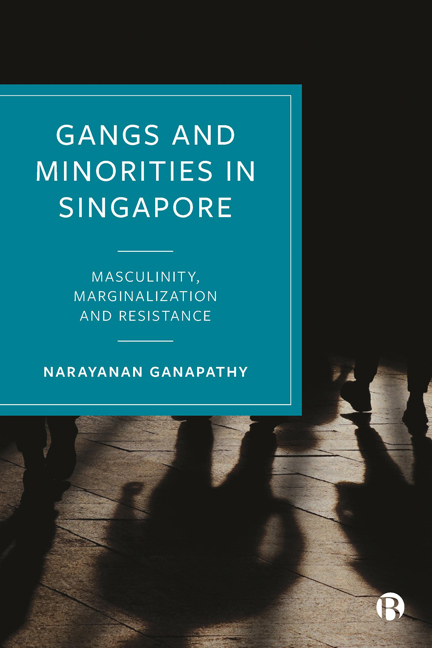Book contents
- Frontmatter
- Contents
- List of Figures
- List of Abbreviations
- Glossary of Non-English Terms
- About the Author
- Preface
- 1 Introduction: Framing the Study
- 2 Omega as Organized Crime?
- 3 Racial Minorities and Crime
- 4 Methods of Study
- 5 The Rise of Omega
- 6 Fearless and Fearsome
- 7 The Omega Wave: The ‘Triadization’ of Omega
- 8 Conclusion: Law, Drug Crimes and Marginality
- Notes
- References
- Index
1 - Introduction: Framing the Study
Published online by Cambridge University Press: 28 March 2024
- Frontmatter
- Contents
- List of Figures
- List of Abbreviations
- Glossary of Non-English Terms
- About the Author
- Preface
- 1 Introduction: Framing the Study
- 2 Omega as Organized Crime?
- 3 Racial Minorities and Crime
- 4 Methods of Study
- 5 The Rise of Omega
- 6 Fearless and Fearsome
- 7 The Omega Wave: The ‘Triadization’ of Omega
- 8 Conclusion: Law, Drug Crimes and Marginality
- Notes
- References
- Index
Summary
This book is a qualitative study of a monoethnic Malay Muslim gang, Omega, which has its roots in the Singapore prisons. It remains one of the most important secret societies in postcolonial Singapore, albeit a racially exclusive one, having gained much control over the illicit drug trade in the country and in the Southeast Asian region since the 1990s, though the scale of its activities seems to have diminished over the last decade. This study aims to examine the genesis of the gang and its processes of gang membership and initiation, structure, organization and activities, as well as behavioural traits of its members. While the Omega gang outwardly operates with strong ethnoreligious overtones through the incorporation of Islamic doctrines to create a form of ‘Muslim brotherhood’ in the criminal underworld, its existence is also very much about how Malays as a racial minority in Singapore have responded to latent marginalization and hangovers of colonial racialization by organizing themselves into gangs in order to seek material success. Akin to many racial minority groups elsewhere (such as African Americans in the United States, African Caribbeans in Britain and the Indigenous populations of Australasia), Malays are disproportionately represented in the criminal justice system and often caught in the vicious cycle of arrest–incarceration–re-arrest (Travis et al, 2001). While much has been written about racial disparities in crime in Western countries such as Britain, the United States, Canada, Australia and New Zealand, much less is known about this phenomenon and of the complex and often contested relationship between race and crime in Singapore, an affluent multiracial and multicultural society. This book attempts to address some of the gaps in the current literature and to contribute to a better understanding of this significant but rather obscure dimension of Singapore society.
In theoretical terms, a functionalist-structuralist perspective takes the position that racial disparity in crime in general and the disproportionate involvement of visible minorities in gangs in particular are a result of the structural marginalization of racial minorities. By treating the Omega gang as a microcosm of the larger socioeconomic and political dynamics of a settler society, the functionalist-structuralist view contextualizes the historical and structural consequences of colonization, industrialization, modernization and socioeconomic disempowerment which have converged to produce an ethnic Malay underclass.
- Type
- Chapter
- Information
- Gangs and Minorities in SingaporeMasculinity, Marginalization and Resistance, pp. 1 - 8Publisher: Bristol University PressPrint publication year: 2023



